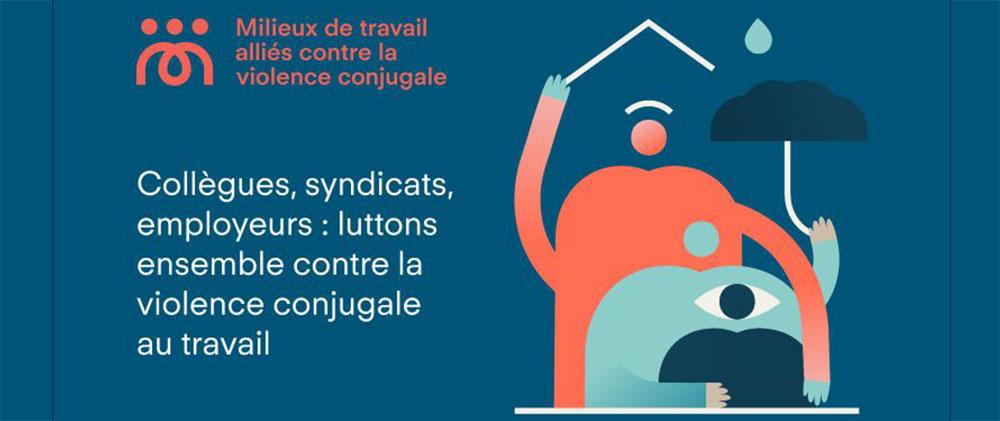
Work environment a training to counter domestic violence
The Grouping of Homes for Women Victims of Domestic Violence (RMFVVC) unveiled its training program on Tuesday aimed at equipping workplaces.
The Minister responsible for the Status of Women, Isabelle Charest, announced an investment of $150,000 over three years for the Allied Workplaces Against Domestic Violence project, during a virtual press conference. According to her, “both employers and colleagues can contribute to the fight against domestic violence”, and “the best way to help is to be well informed about the phenomenon”.
The training is free and available to any company, union or organization in Quebec, regardless of its size, said project manager Arina Grigorescu. Participants can receive three levels of certification.
The RMFVVC thus proposes to come and give awareness conferences, in order to enable colleagues to recognize the signs of violence and to react appropriately to help the victim.
According to the testimonies of many survivors, "the importance that one person can have, with a listening ear or a helping attitude, it can change the course of a life", said Mme< /up> Grigorescu.
According to figures from the Regroupement, “71% of employers have already experienced a situation where they had to protect a victim of domestic violence”.

The Regroupement can also train resource people within the company, or help develop accommodation measures for victims.
It can be “not so complicated” gestures, argued Mme Grigorescu. Examples of measures would be directing the person to specialized resources, changing their office phone number or giving them time to contact aid organizations during their shift.
Last bastion
"For many women, their job represents their last bastion of freedom", argued the president of the RMFVVC, Chantale Arseneault, recalling that "employers now have an obligation to preventing domestic violence at work”.
Despite this, the workplace is not an unshakeable fortress, Ms. Grigorescu warned. Indeed, the Regroupement calculates that “for 53% of victims of domestic violence, this violence continues at work”.
Not only do “victims experience harassment by phone or text message during weekdays,” but some abusers “even show up during work hours to check on the victim or talk to co-workers.”
Others try to make him lose his job, and therefore his financial independence, by destroying his work clothes or preventing him from sleeping, she explained. In addition, the victim often has more and more difficulty fulfilling his tasks because of his state of mental health.
With teleworking, victims “find themselves increasingly isolated and at risk of more frequent and serious violence”. This is why, according to her, “you have to continue to maintain contact with your employees even if they are not in the office, take the time to call them, make teleconferences”.
She mentioned using a code word system to communicate with an employee experiencing domestic violence while her spouse is present, or even to request that she return to work in the office.
Precursors
Desjardins and the City of Laval have already received their certification.
The person in charge of the Bureau du respect de la personne de Desjardins, Geneviève Mérette, testified that at least two employees had left their violent spouse in the wake of the measures put in place, which include conferences, an intranet page and the formation of a team of resource persons.
The Quebec Association of Early Childhood Centers and the United Steelworkers also got their hands dirty.
Among the Steelworkers, the subject strikes close to the heart: a union activist, Nadège Jolicoeur, was caught up in the wave of 13 feminicides of 2021. Killed by her spouse, who then committed suicide, she left in the mourning his five children.
This tragedy was “an electroshock,” said communications coordinator Clairandrée Cauchy. In a video shot the day after the murder and shared within the union, director Dominic Lemieux recounted his own experience with an abusive father and issued a call for action.
Representatives of the RMFVVC have since toured the regional groupings, said Mme Cauchy.
More information is available on the program website: milieusdetravailallies.com.
If you are experiencing domestic violence or know someone in this situation, you can contact SOS violence conjugale at 1800 363-9010. This line is anonymous and available 24 hours a day, 7 days a week.
This article was produced with the financial support of Facebook and The Canadian Press News Grants.







